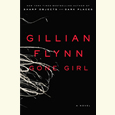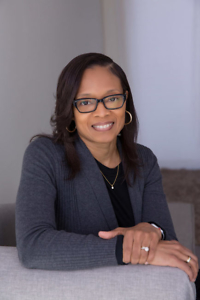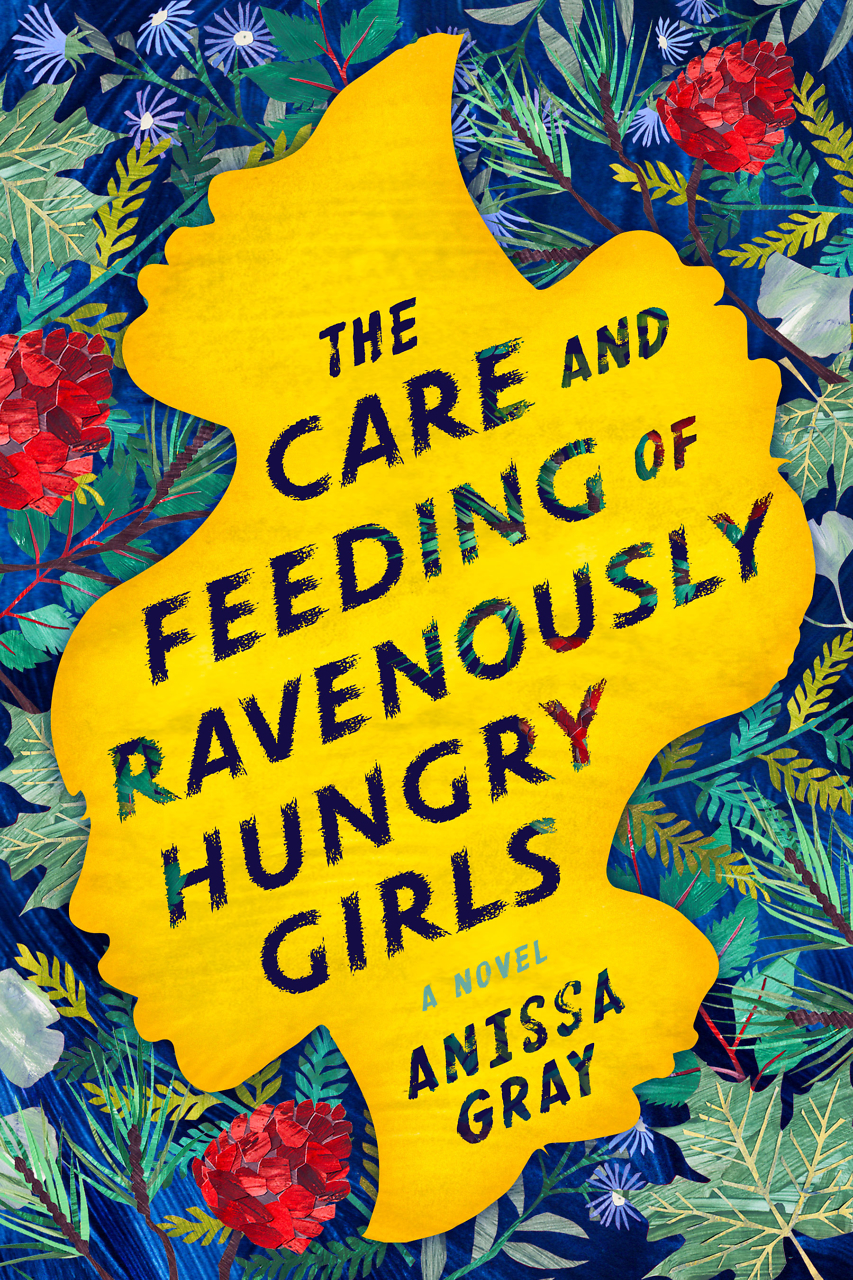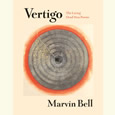Taken at the Flood
In We Are Water, Wally Lamb unwinds the tangled threads that hold families together through fire and flood
Wally Lamb’s fifth novel is a tumultuous tale of the human heart and a testament to its capacity for survival. In We Are Water, a family survives almost anything thrown at it—abandonment, abuse, divorce, murder—because love is still there. “We are like water, aren’t we?” Lamb writes. “We can be fluid, flexible when we have to be. But strong and destructive, too.”
Two of Lamb’s previous novels, She’s Come Undone and This Much I Know Is True, were New York Times number-one bestsellers. We Are Water examines the breakup of Annie and Orion Oh’s twenty-five-year marriage. Annie is planning to marry Viveca, the agent who represents her controversial outsider art. Orion is unmoored by the collapse of both his marriage and his career as a college psychologist.
Annie and Orion’s three children reluctantly come back to Connecticut for Annie and Viveca’s wedding. Even Orion is on hand, staying in the family’s old house, not far from Annie’s childhood home and the river that took her mother’s life. Over the course of this sprawling novel, told in a variety of voices, Lamb picks apart the threads of Annie’s tangled life until he has teased out the darkest one, which first appeared after her mother’s death in an infamous Connecticut flood.
In advance of his appearance at Nashville Public Library’s Salon@615 series, Wally Lamb answered questions via email from Chapter 16.
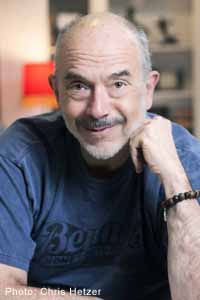 Chapter 16: We Are Water paints a portrait of family love which survives horrors, abuse, divorce, and remarriage. For you, as a father and husband yourself, what’s the glue that holds families together?
Chapter 16: We Are Water paints a portrait of family love which survives horrors, abuse, divorce, and remarriage. For you, as a father and husband yourself, what’s the glue that holds families together?
Wally Lamb: Whose family doesn’t have to weather challenges of all kinds, from death and divorce to who inherits the grandfather clock after Grandpa is gone? But whereas troubles big and small, serious and petty, may float to the surface, it’s the undercurrent of love that ultimately prevails in all but the most dysfunctional families. Is it primal? Nature trumping nurture? If so, then how to explain the deep and abiding love between children and their adoptive families? All I know is that when the battle is between family troubles and traumas versus familial love, love almost always wins.
Chapter 16: Both She’s Come Undone and We Are Water reveal the secret hearts of women. As a male writer, how do you go about creating female characters? Do you side with Flaubert who famously said, “Madame Bovary c’est moi”?
Lamb: C’est moi? Non, madame. But having grown up with older sisters and older girl cousins next door, I had a front-seat view of the world of females during my childhood. Perhaps that’s why, as an adult, I invest in neither the gender wars nor the “feminine mystique.” When you are open to women, they open up to you, and I guess that’s what allows me the freedom to speak in the voices of my female characters. I don’t know; if men are from Mars and women are from Venus, maybe I’m an intergalactic traveler.
Chapter 16: One of your two main characters, Annie Oh, channels her secret pain and anger into provocative outsider art. Both she and another outsider artist, Josephus Jones, are overwhelmed by their visions and obsessively driven to create. Is there any sense in which your own writing follows this creative pattern?
Lamb: Alas, all too infrequently. For me, writing a first draft is mostly grunt work. Put down the first sentence. Revise it six times. Write the second sentence. Fix it. Go back to the first sentence and fix that one some more, etc. But sometimes in ways I can neither fully describe nor understand, I fall into “the zone,” as they say, and the reality is what’s on the page or the computer screen in front of me, not my actual surroundings or my real life. It’s a kind of trance, I suppose—a madness that is, thank god, temporary.
Chapter 16: You’ve lived all your life in or near Norwich, Connecticut, where you grew up. How has being a mossy stone affected your writing, if at all?
Lamb: A mossy stone, eh? Why do I suddenly have the impulse to get up and shave? Seriously, though, the town where I was raised has affected my writing in all sorts of ways. The cast gallery of Greek and Roman antiquities at the local Slater Museum triggered my interest in the ancient myths that serve as the backbone of my novels. Norwich has a rich Native American history and was, in the nineteenth and early twentieth century, a wealthy industrial town that imported thousands of foreign-born immigrants to work in its textile factories. To this day, that multicultural influx flavors Norwich in all sorts of interesting ways. The plot of my latest novel, We Are Water, derives from two mid-twentieth-century Norwich events: a devastating 1963 flood and the 1959 death of an African-American artist named Ellis Ruley. Had Ruley died accidentally as the coroner claimed, or was his death a racially charged murder?
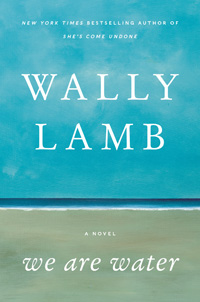 Chapter 16: In the weeks before the publication of We Are Water, the fiftieth anniversary of the 1963 March on Washington has been relived on television, in newspapers and magazines, in countless private and public ceremonies, and in a lot of people’s hearts. Given the thread of racism and its aftermath in We Are Water, was the book’s release date planned to coincide with this reminder of the civil-rights era?
Chapter 16: In the weeks before the publication of We Are Water, the fiftieth anniversary of the 1963 March on Washington has been relived on television, in newspapers and magazines, in countless private and public ceremonies, and in a lot of people’s hearts. Given the thread of racism and its aftermath in We Are Water, was the book’s release date planned to coincide with this reminder of the civil-rights era?
Lamb: Although I believe my story is relevant to the 1963 March and resonates with its half-century anniversary, no such planning occurred. That would have required a strategy, and I write intuitively, not strategically. Some novelists outline their story and write toward a preconceived ending. This allows them to pull the strings of their characters like puppeteers. My process is different. I wait for a character to start talking. Then I follow wherever he or she decides to lead me. So, for me, the protagonist is the puppeteer and, pen in hand, I’m the puppet. That said, I do live in the real world, not in a vacuum. I began this novel in the opening months of President Obama’s first term and kept hearing the assertion that we were now a post-racial society. I don’t buy that we can shake off the shameful aspects of our history that easily and brought that skepticism into the writing of my novel.
Chapter 16: You have been a teacher for decades—at Norwich Free School, at the York Correctional Institute, and at the University of Connecticut. With such a diverse swath of students, have you discovered any universals about student writing? Or about writing generally?
Lamb: When I started teaching high-school students in 1972, I was assigned the classes that none of the veteran teachers wanted. Many of the kids in my senior class had been held back so many times that several were my age: twenty-one. Yet we got along well when I invited them to write about what they cared about, in the voices that were natural to them. Forty years after she wrote it, I can still recall a three-line poem that one of those students, Barbara Ruley, wrote about a guy who’d been hitting on her: A big, tall-walking dude/With apple hat and three-inch heels/Talk more shit than the radio. (By the way, I got in trouble with the principal for publishing Barbara’s poem with the word “shit” in it.)
Good writing isn’t about spelling or where to place the apostrophe. Those are tangential concerns. Good writing relies on an honest voice. One of my prison students, Bonnie Foreshaw, hails from the inner city of South Florida, and her speech is rich with the great vernacular of that culture. Example: when two women talk at an impromptu street party, they “conversate.” Yet when Bonnie entered our program, her writing employed the stilted, faux-formal English that some grade-school teacher probably had insisted upon. Her written work was as dreadful as her conversation in class was delightful. “Bonnie, grab that pen, put it to paper, and conversate!” I told her. Once she did that, her writing style broke open, and there was no stopping her.
[This article appeared originally on October 28, 2013. It has been updated to reflect new event information.]

Lyda Phillips is a veteran journalist who grew up in Memphis and has earned degrees from Northwestern, Columbia, and Vanderbilt universities. The author of two young-adult novels, she worked for United Press International before returning to Nashville.

